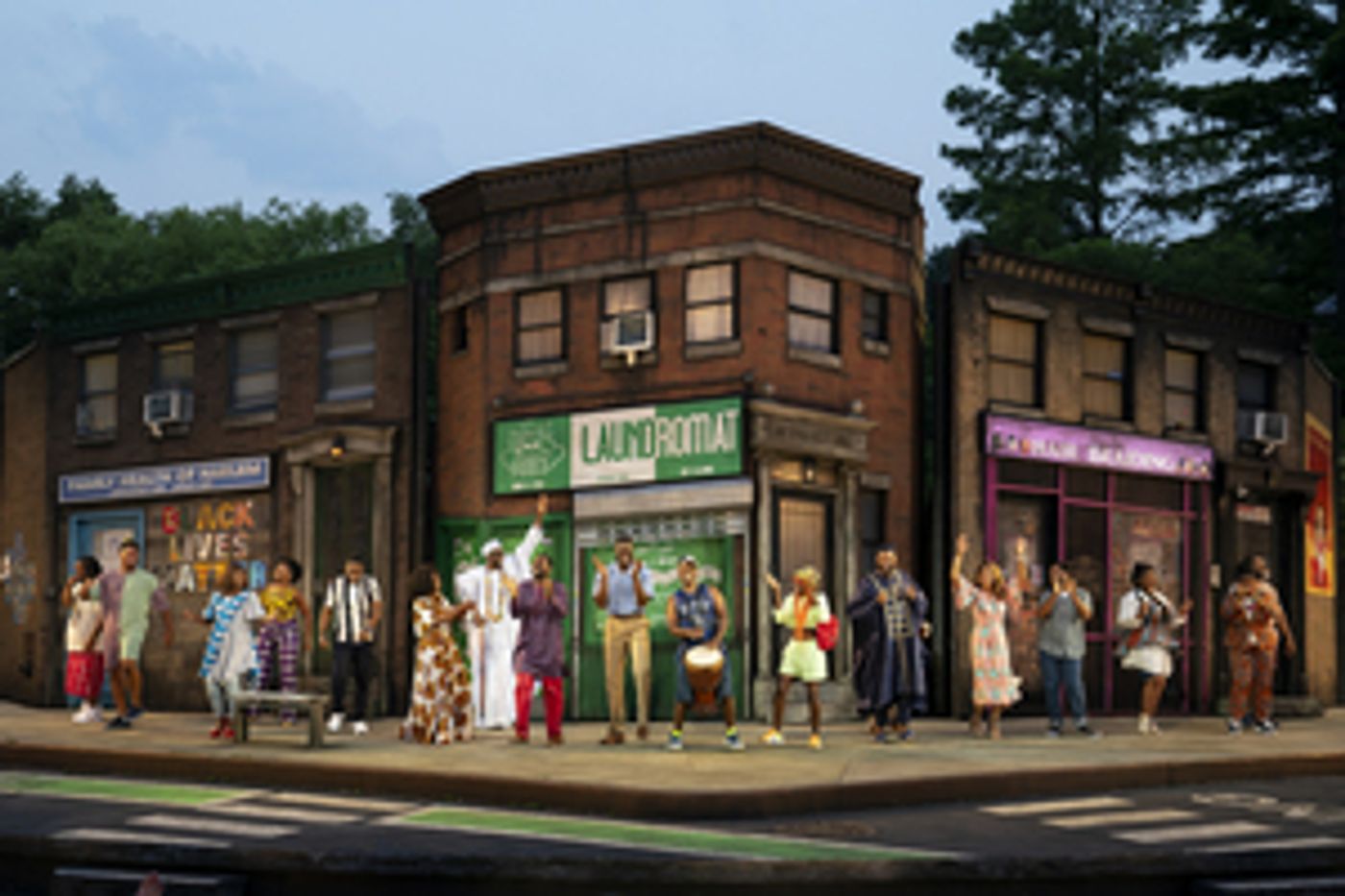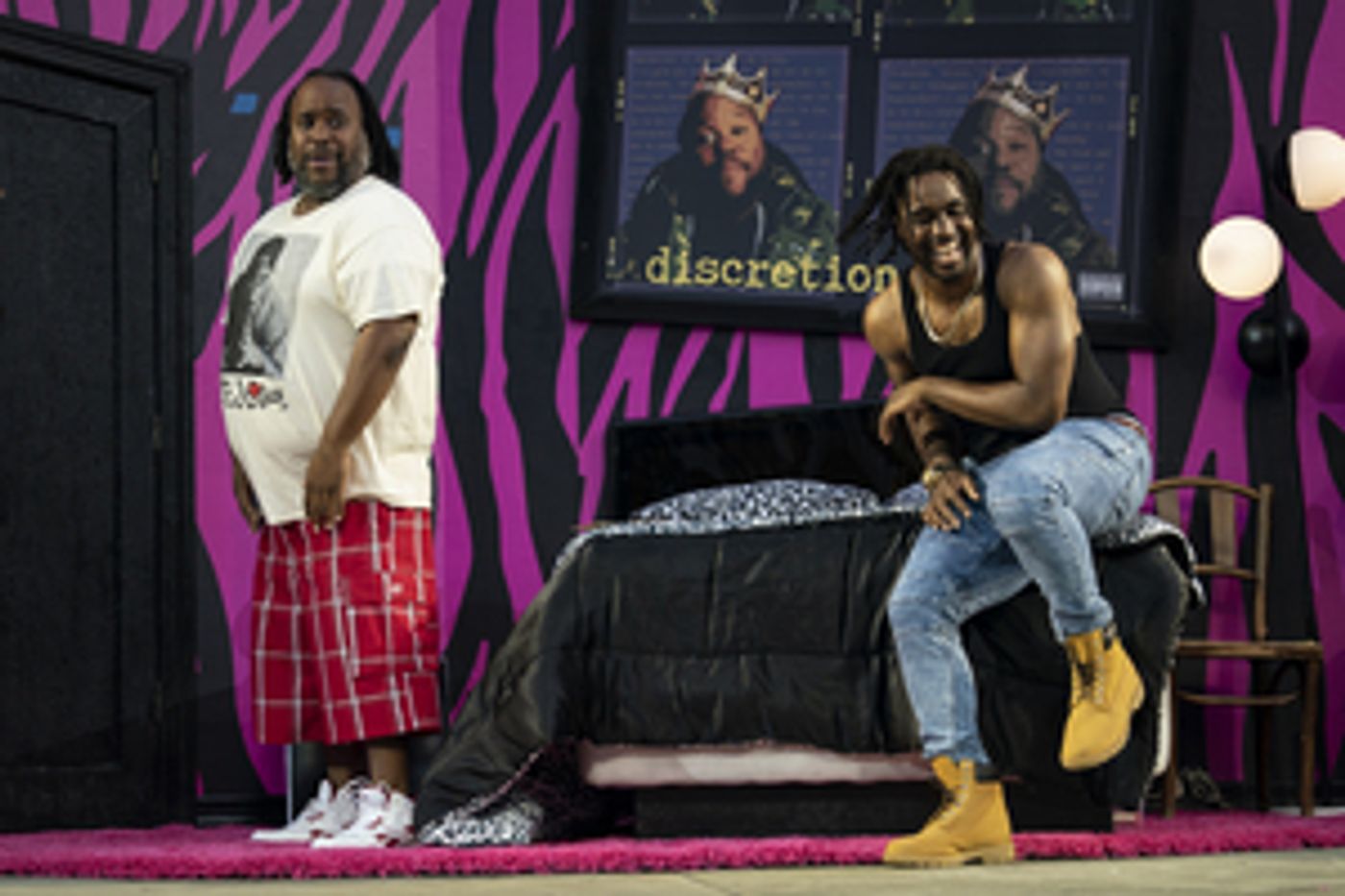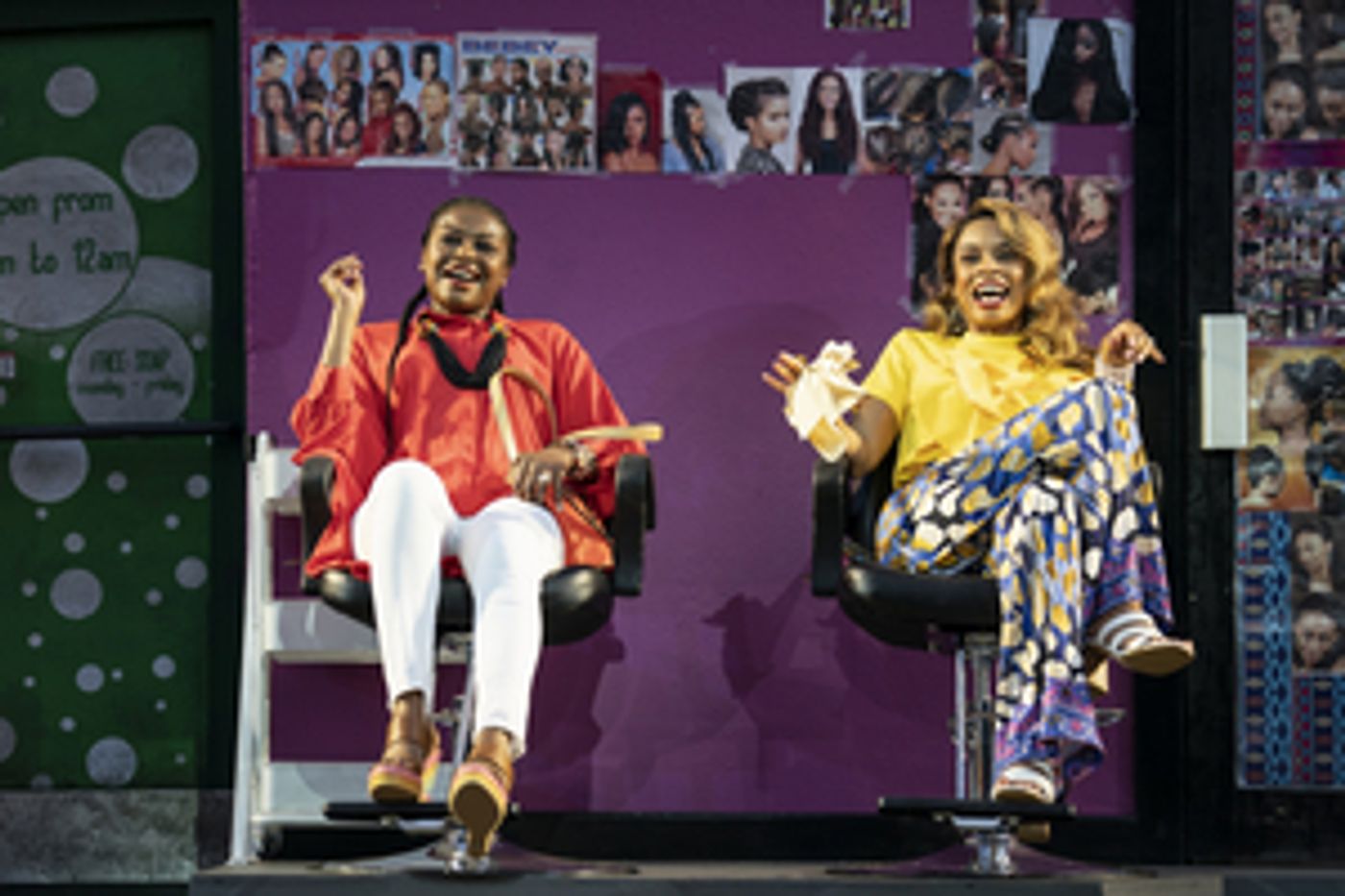Review: Shakespeare in the Park Triumphantly Returns with MERRY WIVES
Adaptation by Jocelyn Bioh. Directed by Saheem Ali. Delacorte Theater (Central Park). 110 minutes, no intermission. Runs through September 18th.

Walking into the Delacorte Theater, after a year and a half without in-person theater, was emotional: to be once more surrounded by audience members, all thrilled to be witnessing live, in-person theater, to feel that anticipatory pre-show buzz as everyone settles in their seats and prepares to be transported by the art in front of them. This is not to disparage digital theater--so much of which I have greatly enjoyed--but to note that there is something special about being in person, something tangible in seeing performers live in front of you, that cannot be beat.
For its return to in-person theater, Shakespeare in the Park chose a new adaptation of The Merry Wives of Windsor. Joeclyn Bioh's Merry Wives is set in Harlem and features an ensemble of Black American and West African immigrant characters. Like the original, it concerns Falstaff and his attempts to woo two married women, a feud among some neighborhood men, and a young woman with three suitors.
The Merry Wives of Windsor is certainly not one of Shakespeare's more famous, or best, plays. The comedy feels basic, the play lacks focus, and it never reaches the heights of his other notable comedies. The play was inspired by, and rests on, Falstaff, here played with comedic gusto by Jacob Ming-Trent. The actor playing Falstaff has to hold up the entire piece, and Ming-Trent, though he gives an enjoyable performance, does not manage to do so. (What's more, his never-ending fat jokes feel in bad taste and receive no laughs from the audience.) Instead, it is Pascale Armand as Madam Page, Susan Kelechi Watson as Madam Ford, and Shola Adewusi as Mama Quickly who give the best performances, master the gender-based comedy of the piece, and help the show become the delight that it is.

The scenes that heavily feature the female characters are by far the funniest. The first two acts are taken up almost entirely by the male characters' squabbles; it is only once the women take over in act three that the piece really takes off. Getting to witness Madam Ford and Madam Page prepare their traps for Falstaff is comedic gold, as they set the stage, melodramatically over act for him, and mouth each other's pre-scripted lines. There is also much fun to be by Adewusi, whose Mama Quickly manages to both be at the center of the farce but stay safe enough away to laugh at the folly of man. True to the title, it is the merry wives who are the star here, not the more obvious center of the play, Falstaff. Watson (of "This Is Us") is the strongest actor of the cast, and although she does not have nearly as much stage time as Ming-Trent, she makes the most of what she has and is the source of the vast majority of the evening's laughter.
Perhaps the most successful aspect of Bioh's adaptation is the masterful way she is true to Shakespeare's text while also achieving an impressive degree of cultural specificity. She makes a play written by a white man in England three hundred years ago feel like it is speaking to the experience of Black Americans and West African immigrants living in Harlem in 2021. This is a testament to Bioh's skills as an adaptor, Saheem Ali's direction, and to the wonderfully vibrant costumes by Dede Ayite.
This brings to mind Kenny Leon's all-Black Much Ado About Nothing (2019). While in that production the script was original, Merry Wives takes a more hands-on approach, changing the text itself. This helps the play speak to our current moment, like when Bioh weaves in references to the Covid-19 pandemic and Black Lives Matter during a monologue Falstaff delivers to the audience and a stirring speech by Mama Quickly. Bioh has made the choice to make one of Anne's (the wonderful Abena) suitors a woman, which reveals the homophobia of her parents. These elements, while greatly appreciated, would have been even more successful had they been explored at length.
 Bioh and Ali have not chosen to challenge Shakespeare's merry ending. Anne's parents accept her marriage to a woman with almost no hesitation, despite previous homophobic comments. Though Falstaff was sexist, Mister Ford (Gbenga Akinnagbe) was violently jealous, and Mister Page (Klye Scatliffe) tried to trick his daughter into a forced marriage, all three men end almost completely forgiven. Though Shakespeare and Bioh make it clear that the women are the smartest characters, I would have appreciated more criticism of the male characters. For a play all about gender, I wish it had a stronger message, and one that was not tarnished by the overly neat happy ending.
Bioh and Ali have not chosen to challenge Shakespeare's merry ending. Anne's parents accept her marriage to a woman with almost no hesitation, despite previous homophobic comments. Though Falstaff was sexist, Mister Ford (Gbenga Akinnagbe) was violently jealous, and Mister Page (Klye Scatliffe) tried to trick his daughter into a forced marriage, all three men end almost completely forgiven. Though Shakespeare and Bioh make it clear that the women are the smartest characters, I would have appreciated more criticism of the male characters. For a play all about gender, I wish it had a stronger message, and one that was not tarnished by the overly neat happy ending.
Bioh clearly has much more to say than can be contained in Shakespeare's play, and yet she is too faithful to it, unwilling to really break it apart and make big changes. If she had cut some of the excess male characters and their sub-plots, for instance, perhaps she could have given more space and time to the women's plots and to the contemporary themes she was exploring.
More than any other Shakespeare in the Park production I've seen, this piece celebrated the fact that it was in the park. I won't reveal how it is achieved, but Beowulf Borrit's set and Jiyoun Chang's lighting create a stunning coup de theatre that embraces Central Park as a theatrical space in a way I will never forget. It was a piece of theater magic that helped remind me just how special in-person theater can be.
Despite some things to quibble with, Merry Wives is a vastly enjoyable piece of theater, a beautiful celebration of Black joy. After the past year, it is exactly the type of theater we need. If this is what the future of theater looks like, I am eagerly awaiting what else is in store for this season and beyond.
Reader Reviews
Videos
